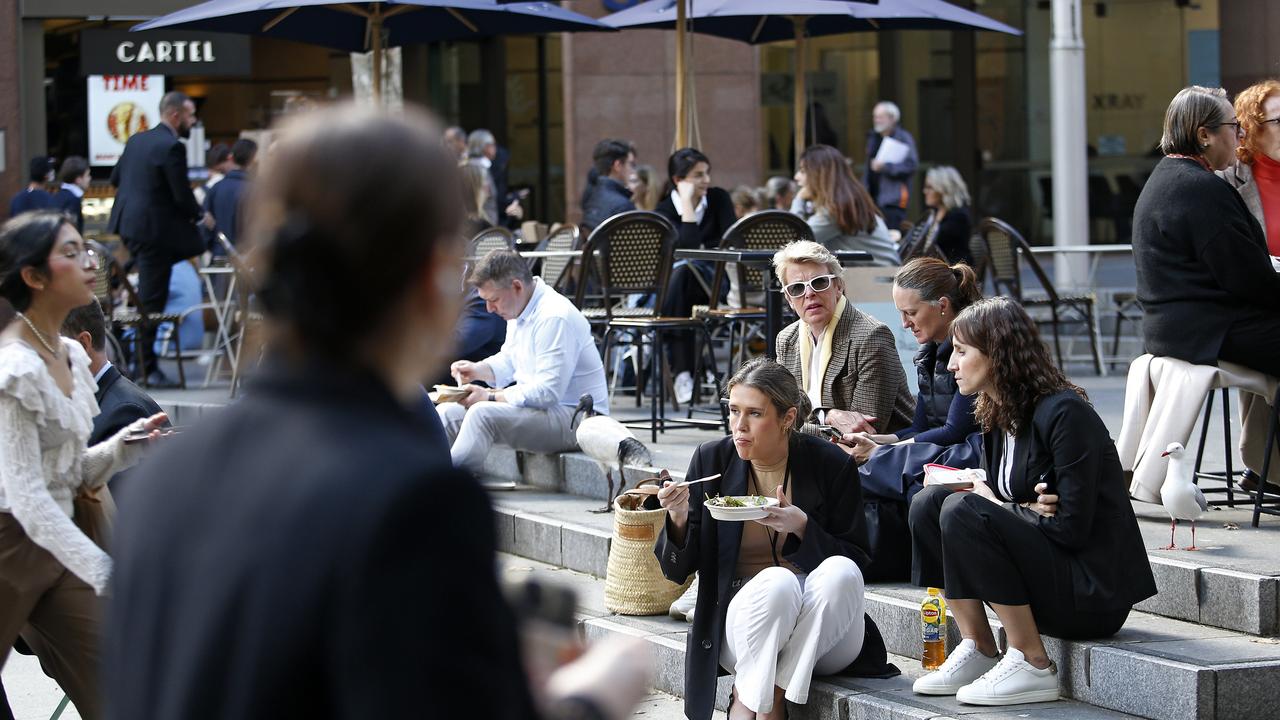‘Death spiral’: Bitcoin falls below $US16,000 as Binance walks away from FTX bailout
Bitcoin has suffered another brutal plunge to below $US16,000 following the collapse of a major exchange.

Bitcoin has suffered another brutal plunge to a two-year low of under $US16,000, bringing the cryptocurrency’s total losses to more than 20 per cent in two days.
The 13 per cent fall — from around $US18,650 on Wednesday morning to just below $US16,000 on Thursday — was triggered by news that the cryptocurrency exchange Binance was “strongly leaning” towards scrapping a rescue takeover of rival FTX.
Industry website CoinDesk, citing a “person familiar with the matter”, was first to report Binance was “highly unlikely” to go through with the proposed acquisition after less than a day reviewing the company’s books.
“Binance’s nonbinding letter of intent for the takeover — announced Tuesday as FTX’s financial position appeared to be spiralling out of control — hinged on Binance performing due diligence,” CoinDesk reported.
Stay up to date with the latest in crypto currency on Flash. 25+ news channels in 1 place. New to Flash? Try 1 month free. Offer available for a limited time only >

“Roughly half a day into that process of reviewing FTX’s internal data and loan commitments has led Binance to strongly lean against completing the transaction, the person said.”
Binance subsequently confirmed the deal was off — sparking renewed selling that pushed bitcoin below the $US16,000 threshold for the first time since late 2020.
In the beginning, our hope was to be able to support FTX’s customers to provide liquidity, but the issues are beyond our control or ability to help.
— Binance (@binance) November 9, 2022
“As a result of corporate due diligence, as well as the latest news reports regarding mishandled customer funds and alleged US agency investigations, we have decided that we will not pursue the potential acquisition of FTX.com,” Binance said in a statement.
“Our hope was to be able to support FTX’s customers to provide liquidity, but the issues are beyond our control or ability to help.”
The phrase "Lehman moment" gets tossed around a lot, but this is genuinely it for crypto https://t.co/Pwzdn8mVKg
— Matt O'Brien (@ObsoleteDogma) November 9, 2022
The statement continued, “Every time a major player in an industry fails, retail consumers will suffer. We have seen over the last several years that the crypto ecosystem is becoming more resilient and we believe in time that outliers that misuse user funds will be weeded out by the free market. As regulatory frameworks are developed and as the industry continues to evolve toward greater decentralisation, the ecosystem will grow stronger.”
Sad day. Tried, but ðŸ˜
— CZ 🔶 Binance (@cz_binance) November 9, 2022
FTX is yet to publicly comment.
The exchange’s website is now offline.
“Sad day,” Binance founder and chief executive Changpeng “CZ” Zhao wrote on Twitter. “Tried, but [crying face emoji].”
According to The Wall Street Journal, FTX CEO Sam Bankman-Fried told investors on Wednesday that he needed emergency funding to cover a shortfall of up to $US8 billion due to recent withdrawal requests.

Ethereum has also dropped more than 12 per cent since yesterday, and has lost nearly one quarter of its value over the past week, according to Coinmarketcap.
The total cryptocurrency market has lost close to $US200 billion, from just over $US1 trillion prior to the FTX drama to around $US840 billion.
Earlier, Mr Zhao sent a note to employees saying due diligence for the deal was “ongoing”.
He warned FTX going down was “not good for anyone in the industry”.
In the spirit of transparency, might as well share the actual note, sent to all Binance team globally a few hours ago.https://t.co/IUNkPcLC8Tpic.twitter.com/XGlIJB7EV5
— CZ 🔶 Binance (@cz_binance) November 9, 2022
“Do not view it as a ‘win for us’,” he wrote.
“User confidence is severely shaken. Regulators will scrutinise exchanges even more. Licenses around the globe will be harder to get. And people now think we are the biggest and will attack us more. But that’s OK, we are used to being open and leaning into headwinds. In fact, we embrace scrutiny. We must significantly increase out transparency, proof-of-reserves, insurance funds, etc. A lot more to come in this area. We have a lot of tough work ahead of us. Not to mention prices swinging wildly.”

He stressed that Binance “did not master plan this” and that it was “less than 24 hours ago” that Mr Bankman-Fried had called him.
“And before that, I had very little knowledge of the internal state of things at FTX,” he said.
“I could do some mental calculations with our revenues to guess theirs, but it would never be very accurate. I was surprised when he wanted to talk.”
Binance, the biggest exchange accounting for more than half of spot trading volume, confirmed on Tuesday (US time) that FTX was facing a “significant liquidity crunch” and had “asked for our help”.
if people like new office videos..
— FTX (@FTX_Official) November 7, 2022
about a month out from moving into our new Tokyo office pic.twitter.com/o3bGbqxKtr
That followed days of speculation that FTX and sister company Alameda Research, both founded and largely owned by Mr Bankman-Fried, were facing a liquidity crisis, amid revelations Alameda’s balance sheet was too heavily reliant on illiquid tokens including FTX’s own FTT.
In response, Mr Zhao publicly announced that he would sell his holdings of FTT worth — at the time — $US584 million, triggering a near-total collapse of the token mirroring the Terra/Luna disaster earlier this year.

The FTT token has lost nearly 90 per cent of its value since last week.
Bloomberg columnist Matt Levine said FTX had been caught in a “death spiral” as a result of holding FTT — effectively a stock in the company — as collateral.
“This is completely insane,” he wrote.
“If people start to worry about the investment bank’s financial health, its stock will go down, which means that its collateral will be less valuable, which means that its financial health will get worse, which means that its stock will go down, etc. It is a death spiral. In general it should not be possible to bankrupt an investment bank by shorting its stock. If one of the bank’s main assets is its own stock — is a leveraged bet on its own stock — then it is easy to bankrupt it by shorting its stock.”
In his letter to staff, Mr Zhao ordered employees not to trade FTT tokens while the deal was ongoing. “If you have a bag, you have a bag,” he said.
“DO NOT buy or sell. As soon as I finished the call with SBF yesterday, I asked our team to stop selling as an organisation. Yes, we have a bag. But that’s OK. More importantly, we need to hold ourselves to a higher standard than even in banks.”
Mr Bankman-Fried, whose $US16 billion fortune was all but wiped out overnight, announced the “strategic transaction” with Binance on Tuesday while promising that his teams were “working on clearing the withdrawal backlog”.
Customers rushing for the exits had reported difficulties withdrawing funds from FTX.
“This will clear out liquidity crunches; all assets will be covered 1:1,” he wrote on Twitter.
“This is one of the main reasons we’ve asked Binance to come in. It may take a bit to settle etc. — we apologise for that. But the important thing is that customers are protected.”

In a letter to investors announcing the proposed Binance deal, Mr Bankman-Fried said his “first priority is to protect customers and the industry”, followed by shareholders.
“I’m sorry I didn’t do better, and am going to do what I can to protect customer assets, and your investment,” he wrote.
Fawad Razaqzada, market analyst at City Index and FOREX.com, warned that the turmoil could spread outside the cryptocurrency market.
“Even if you are not involved in cryptos, the turmoil is definitely something to keep an eye on, as it may be an additional factor impacting risk appetite across the financial markets,” he wrote.
Ipek Ozkardeskaya, senior analyst Swissquote Bank, was more hopeful, saying if “history is any guidance, it should be fine”.
“We will see a couple of days of high volatility and sell-off, but the contagion will likely remain limited, and the survivors will carry on,” she wrote.
“Yet, investors would be, once again warned, that they are operating in a mostly non-regulated industry, and problems could pop up anytime.”






